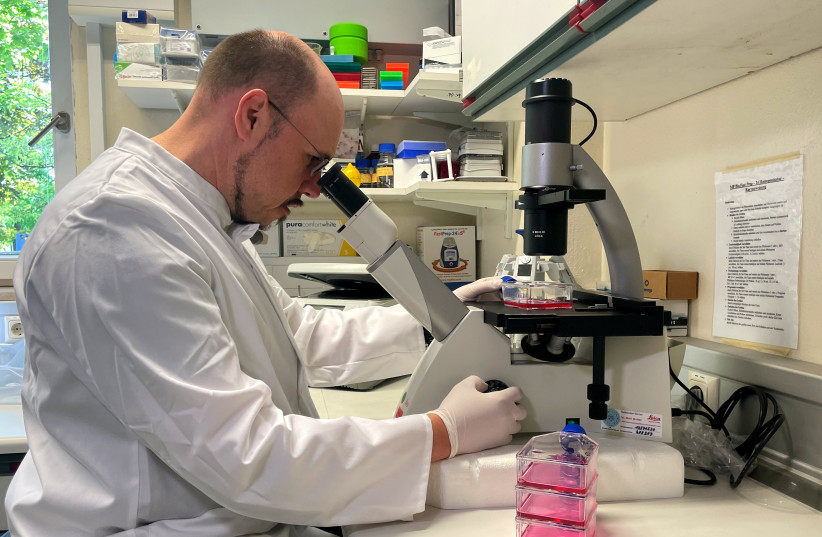Symptoms of the current monkeypox outbreak are significantly different than previous outbreaks reported in African regions, a new study published Thursday in the peer-reviewed British Medical Journal (BMJ) said.
The study analyzed 197 men in London in May-June who tested positive for the illness. All but one of the participants identified as gay or bisexual. Monkeypox has been a globally neglected public health problem in parts of Africa for decades, but cases began to be reported outside countries where it is endemic in May. Currently, Europe is the global epicenter of the outbreak.
All of the study participants suffered lesions, most commonly on their genitals.
Most (86%) of patients in the study reported systemic illness (affecting the entire body). The most common systemic symptoms were fever (62%), swollen lymph nodes (58%), and muscle aches and pain (32%).
Despite existing case reports suggesting that systemic symptoms precede skin lesions, 38% of patients developed systemic symptoms after the onset of mucocutaneous lesions, while 14% presented with lesions without systemic features, the research said.

A total of 71 patients reported rectal pain, 33 sore throats, and 31 penile oedema, while 27 had oral lesions, 22 had a solitary lesion, and 9 had swollen tonsils.
The research revealed that rectal pain and penile swelling (edema) are commonly seen in the current outbreak as compared to the previous outbreaks in the Democratic Republic of Congo in 2007-11 and Nigeria in 2017-18. Additionally, swollen tonsils and solitary lesions were not previously known to be classic features of the virus and are likely to be diagnosed as a different condition.
Researchers expressed hope that physicians will test patients for the monkeypox virus based on these symptoms.
Monkeypox might be a new STD
Scientists advising the World Health Organization (WHO) on monkeypox say the window is closing to stop its spread, with cases currently doubling every two weeks, raising concerns that it will take several months for the outbreak to peak.
WHO Europe has forecast just over 27,000 monkeypox cases in 88 countries by Aug. 2, up from 17,800 cases in nearly 70 countries at the latest count.
Brazil on Friday reported the first monkeypox-related death outside the African continent in the current outbreak, shortly before Spain confirmed Europe's first known death in the outbreak later in the day.
The spread of monkeypox across the globe could mark the beginning of a new sexually transmitted disease, though some medical experts say it is too soon to officially designate the virus as such.
Dr. Roy Zucker, director of the Tel Aviv Sourasky Medical Center - Ichilov Hospital’s LGBTQ health services and a doctor at Clalit Health Services, said that whether or not monkeypox could be designated as an STD is a “great question.”
“We know from past data that the virus can be spread by being in the presence of someone who is infected for a long time – say for three hours at a distance of two meters or so, or by simply coming into physical contact with them,” Zucker told The Media Line. “But what we’re seeing across the world and in Israel is that most of the patients were infected via sexual activity. The WHO also said the same, that it appears as though this disease is transmitted sexually and so we can begin to refer to it as another STD.”
“We know from past data that the virus can be spread by being in the presence of someone who is infected for a long time – say for three hours at a distance of two meters or so, or by simply coming into physical contact with them.”
Dr. Roy Zucker
Nevertheless, Zucker added that it is not entirely certain that monkeypox will be classified as a new STD because, although less common, it also can be transmitted via skin-to-skin contact in non-sexual situations.
Reuters and Maya Margalit/The Media Line contributed to this report.
